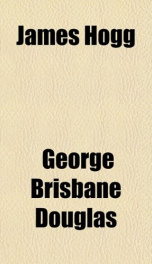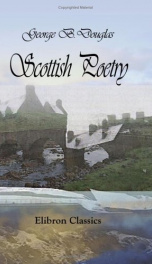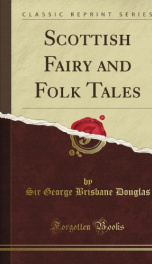james hogg

Purchase of this book includes free trial access to www.million-books.com where you can read more than a million books for free. This is an OCR edition with typos. Excerpt from book: CHAPTER IV Pecuniary disappointments were, however, but April clouds in the habitually serene weather of the Shepherd's life. For, first and last, James Hogg was a happy man. And perhaps only those who have written many biographical sketches will realize how rare a thing it is to find a poet of whom this may truly and consistently be said. No doubt, by way of compensation, some strings of the perfect lyre were in his case mute or missing, and thosestrings of deepest tone and most prolonged vibration. But in a world where ' most men' are cradled out of misery into song, we may almost count the loss as gain. Among Hogg's healthy enjoyments at this period was an annual tour in his well-loved Highlands, where he combined the pleasures of travel with those of visiting a circle of friends now increasing in size and social importance. During the summer of 1814, whilst he was visiting at Kinnaird House in Athole, his hostess, the wife of Mr Chalmers Izett, made a graceful use of her feminine influence to incite him to poetical production. He objected that he had nothing to write about. But she would not hear him. ' How can you be at a loss for a subject,' she returned, 'and that majestic river rolling beneath your eyes ?' Accordingly it was arranged between them that Hogg should write a poem on the Tay. Two years later, in a letter written from Meggernie Castle1 in Glen Lyon, he speaks of having traced the Tay and some of its tributaries to their sources, and 1 Memorials, p. 69. having now 'fixed all the scenery for his next and greatest poetical work.' Combining the practical with the speculative, he had in the meantime taken 'nearly a hundred dozen of trouts,' wading, at a moderate computation, at least a hundred miles to do so. The poem thus originated and studied was publish...
Info about the book
Author:
Series:
Unknown
ASIN:
B0007APFL2
Rating:
3/5 (1)Your rating:
0/5
Languge:
English
Users who have this book
Users who want this book
What readers are saying
What do you think? Write your own comment on this book!
write a commentif you like james hogg try:
Do you want to exchange books? It’s EASY!
Get registered and find other users who want to give their favourite books to good hands!




